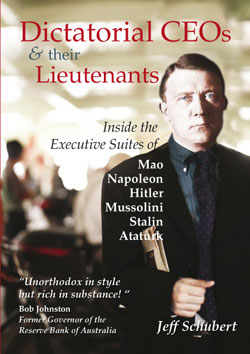Medvedev & Obama: psychological peas in a pod · 12 March 2010
The accession to power of both Barack Obama and Dmitry Medvedev led to hopes among liberals that they would make some significant changes to their respective country’s foreign and domestic policies. It was probably the case that the biggest hopes in the US were for a change in foreign policy that was less aggressive, and the biggest hopes in Russia were for a change in domestic policy that was less restrictive.
But both Obama and Medvedev have disappointed large numbers of their supporters. Of course, to some degree this was inevitable. However, in my view, it is also the case that Obama and Medvedev were not particularly suited to accede to the presidencies. They also let themselves be surrounded by too many experienced people who have tended to dampen insightful liberal impulses. The overall result is still, I think, that both are better presidents than their predecessors but, both could also have been better. Indeed, I expect that both will become better.
Both Obama and Medvedev were young and had led rather intellectually sheltered lives, mainly as constitutional lawyers. I doubt if either had read widely. While both had some useful life experiences, these were somewhat ephemeral. And, neither seems to have made significant and painful work-related (or even non-worked related) mistakes prior to assuming the presidency.
Obama and Medvedev have thus both brought a rather confident intellectual approach to decision making. They believe in listening to the arguments and making decisions. But, in both cases, this theory has run into the reality that the complex problems they must make decisions on require more than intellect; they require very nuanced judgments and both presidents have been slow in trying to make them because their narrow backgrounds have sapped at their confidence.
Despite his essential confidence in himself, Obama seems to have been a little afraid once he won the presidency. Hence his choice of a team of experienced and/or well connected people. Medvedev was, in the main, probably just damn relieved that he inherited Putin’s team and, indeed, Putin himself.
The problem with these teams is that too many of their members are living in the past, and are clinging to notions of power in the face of the march of reality.
Obama’s team seems intent on the US continuing to play the role of world policeman in spite of the reality that a whole range of countries and not just China are growing in both power and independence. The team continues to strongly favor Israel when the over whelming evidence is that Israel is playing the US for a sucker and making things more difficult elsewhere. Does Obama know what he is trying to achieve in Afghanistan? Probably not! But, his narrow background probably left him little alternative but to add more troops in the face of a majority team view that said he should. Hopefully he dreams there will be victory, and hopefully it will lead to something positive!
Ditto Medvedev on state power in Russia. While Obama’s team will be continually reminding him of 9/11, Medvedev’s team will be continually reminding him of the disastrous Yeltsin years. Medvedev’s team which includes Putin is afraid of loosening the government’s role as society policeman. Medvedev says he wants to strengthen the rule of law, but he appears to be having some issues in his own mind about how to do this without reducing ultimate state power over citizens. He is thus forced into a philosophy of modernization from above (ie city of the future project) rather than more sensibly providing the conditions to let it emerge from below.
Reality, in the form of recognition of the limits of US military power and recognition of the limitations of Russian state power over its citizens, is unavoidable. Obama and Medvedev are both very intelligent men, but they are learning on the job and the more they learn they will understand that their teams are holding back their best liberal instincts.
And there is some more good news. Unbridled liberalism and naivety can also be a bad thing. Hopefully, and I expect that this will be the case, the decline in influence of the teams will be accompanied by an increase is sensible presidential decision making ability.


